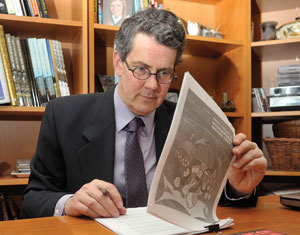
Even with the Canadian Bar Association dropping its planned intervention in the Chevron Corp. matter at the Supreme Court of Canada, the question around the appropriateness of its initial plan remains divisive with some lawyers celebrating the last-minute withdrawal while others say it would have been helpful if it had continued with the case.
 “This is the result we hoped for,” says David McRobert, one of the 120 lawyers across Canada who signed an open letter that urged the CBA to drop its intervention.
“This is the result we hoped for,” says David McRobert, one of the 120 lawyers across Canada who signed an open letter that urged the CBA to drop its intervention.
“The whole intervention had a bad smell about it.”
But for civil litigation lawyer James Morton, news of the withdrawal is “unfortunate.”
“To my thinking, this is one of the most important jurisdictional decisions in my career. It will have a significant impact, depending on the result, on the practice of law and business generally,” he says of the Supreme Court case.
“I think it would have been valuable and I think it would have been helpful for the bar association to continue and it’s unfortunate that they’ve chosen not to. Having said that, I understand their political pressures.”
The CBA announced last week it was withdrawing its intervention in the Chevron matter just a day before the deadline to submit its factum amid mounting pressure from the legal profession.
“We confirm that the CBA has decided to withdraw its intervention before the Supreme Court of Canada in Chevron Corporation et al v. Yaiguaje, et al,” the CBA said in a statement.
“The CBA Intervention Policy requires the legislation and law reform committee to sanction the factum before it can be filed with the court. In this case, the L&LR Committee concluded that while the factum was well-drafted and of a high standard of quality, it did not meet the specific requirements of the Intervention policy.
“The CBA will respect the committee’s opinion and the intervention will be withdrawn. The CBA is thankful for the diligence, conscientiousness and professionalism of its counsel and for the generosity of Blakes in agreeing to
undertake this file for the CBA. We look forward to working with them again in the future.”
According to several sources, the legislation and law reform committee had recommended against the intervention before the CBA decided to intervene in the matter.
The CBA’s decision to intervene in the multinational oil company’s battle against a group of indigenous people in Ecuador stirred significant controversy among members of the bar and resulted in protests against and resignations from the organization.
The Ecuadoran claimants who had obtained judgment for $9.5 billion in a local court against Chevron are now seeking to enforce that judgment against the company’s assets in Ontario.
The CBA had emphasized it wouldn’t be supporting either party in the matter but would speak to “foundational corporate law principles” such as the corporate veil. But many members of the bar said they don’t stand behind those principles and that powerful corporations need to be more accountable.
Not all lawyers agree. “I think those corporate principles are necessary and appropriate,” says Morton, a former president of the Ontario Bar Association.
Some executive members of the CBA’s aboriginal law section opposed the CBA’s move and had resigned over its decision to intervene. In addition, organizations like the Law Union of Ontario had urged their members to quit the CBA as well.
Last week, opponents organized a protest in Toronto against the CBA’s decision to intervene. Demonstrators carried signs that read, “This is why people hate lawyers,” and “Lawyers, show Chevron that your integrity is not for sale.”
Judith Rae, a member of the aboriginal law section, says the CBA “did the right thing” in pulling the plug on its intervention.
“I’m glad to see that the CBA listened to its members at the end of the day and did the right thing,” she says. “As a member, my top concern was that this was not the right intervention for the CBA and not within their policy, and ultimately the CBA leadership reached the same conclusion.”
McRobert says the decision to intervene in the first place reflected a “powerful corporate arm” within the CBA. He doubts that members who have resigned from the CBA will return now that “they have seen an aspect of the organization that they didn’t know existed.”
The Chevron matter will be before the Supreme Court in December. According to the Wall Street Journal, a U.S. court was highly critical of the Ecuadoran court ruling in March. U.S District Court Judge Lewis Kaplan found the Ecuadoran ruling was obtained through coercion and bribery, the publication reported. Kaplan, it noted, found the lawyer representing the plaintiffs had fabricated evidence and promised $500,000 to an Ecuadoran judge in exchange for the ruling. Kaplan’s ruling is under appeal.
For more, see "Members leave CBA over Chevron case."